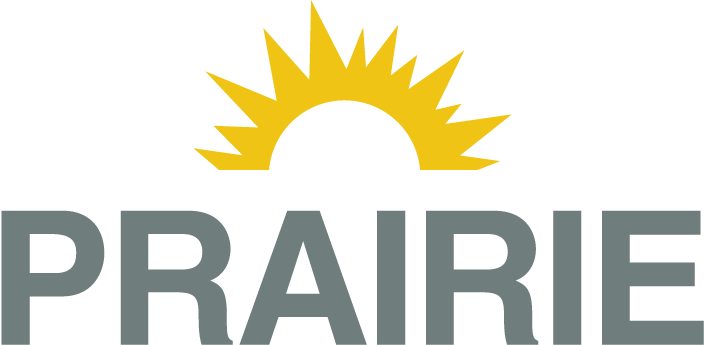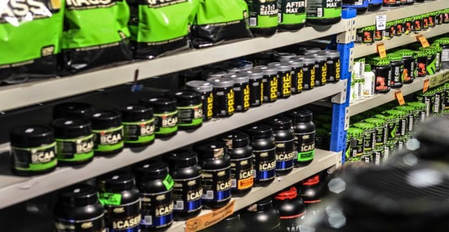Probiotics
Probiotics are live bacteria and yeasts that are beneficial to general health, but primarily improve your digestive and immune system. When you think of bacteria, typically we think of germs, but our body contains both good and bad bacteria. A lot of bacteria thrives in our digestive system and when we consume good bacteria like probiotics, our body can digest and absorb nutrients better. All of the food we eat doesn’t necessarily get completely used by our body if our digestive system isn’t functioning properly. You aren’t what you eat, you’re what you absorb. Taking antibiotics can kill much of the good bacteria in our gut so probiotics should be taken if you’re on antibiotics. Along with improving our digestive system, probiotics strengthen our immune system. 70% of our immune system is in our gut, so if your digestive system isn’t functioning properly then your immune system can become compromised leading to increased risk of sickness and poor recovery.
Probiotics are live bacteria and yeasts that are beneficial to general health, but primarily improve your digestive and immune system. When you think of bacteria, typically we think of germs, but our body contains both good and bad bacteria. A lot of bacteria thrives in our digestive system and when we consume good bacteria like probiotics, our body can digest and absorb nutrients better. All of the food we eat doesn’t necessarily get completely used by our body if our digestive system isn’t functioning properly. You aren’t what you eat, you’re what you absorb. Taking antibiotics can kill much of the good bacteria in our gut so probiotics should be taken if you’re on antibiotics. Along with improving our digestive system, probiotics strengthen our immune system. 70% of our immune system is in our gut, so if your digestive system isn’t functioning properly then your immune system can become compromised leading to increased risk of sickness and poor recovery.
Beta-alanine
Beta-alanine is an amino acid. Supplementing with this can enhance muscular endurance. When we work out, our muscles can have a buildup of Hydrogen ions leading to acidity, causing fatigue. Beta-alanine turns into a molecule called carnosine when consumed. Carnosine is stored in cells and released when our body senses a drop in pH (more acidic). Increased stores of carnosine can delay lactic acid production from exercise to help our body push past normal limits. Beta-alanine is typically taken in a dose of 2-5g either before a workout or spread out in small doses during the day. Many users experience something called paresthesia described as a tingling feeling on the skin. This is completely harmless but can be irritating to some individuals, so it would be better to take in the smaller doses during the day instead of before a workout. As long as it is taken consistently, results will be seen. This is found in many pre-workout supplements, but it’s cheaper and better dosed if you buy this ingredient separately.
Beta-alanine is an amino acid. Supplementing with this can enhance muscular endurance. When we work out, our muscles can have a buildup of Hydrogen ions leading to acidity, causing fatigue. Beta-alanine turns into a molecule called carnosine when consumed. Carnosine is stored in cells and released when our body senses a drop in pH (more acidic). Increased stores of carnosine can delay lactic acid production from exercise to help our body push past normal limits. Beta-alanine is typically taken in a dose of 2-5g either before a workout or spread out in small doses during the day. Many users experience something called paresthesia described as a tingling feeling on the skin. This is completely harmless but can be irritating to some individuals, so it would be better to take in the smaller doses during the day instead of before a workout. As long as it is taken consistently, results will be seen. This is found in many pre-workout supplements, but it’s cheaper and better dosed if you buy this ingredient separately.
BCAAs
A complete protein molecule is made up of 20 amino acids. Branched Chain Amino Acids (BCAAs) are a name for a combination of 3 amino acids; leucine, isoleucine, and valine. Leucine is important for muscle protein synthesis (growth and repair), isoleucine triggers glucose (sugar) uptake into cells, and further research is needed to determine valine’s role in a BCAA supplement. BCAAs are found in protein sources. BCAA supplementation is NOT necessary unless an individual is on a low protein diet. When a sufficient amount of protein is eaten per day (1-1.5g per kg of bodyweight a day or more), BCAA use will not have much of a benefit because enough is being consumed from the diet. For people with low dietary protein intake, supplementing with BCAAs can stimulate muscle protein synthesis and increase muscle growth over time. BCAA supplementation can help reduce fatigue. When BCAA intake is insufficient during training, tryptophan, another amino acid, increases in the brain causing our body to produce serotonin, which causes a sense of fatigue and relaxation.
A complete protein molecule is made up of 20 amino acids. Branched Chain Amino Acids (BCAAs) are a name for a combination of 3 amino acids; leucine, isoleucine, and valine. Leucine is important for muscle protein synthesis (growth and repair), isoleucine triggers glucose (sugar) uptake into cells, and further research is needed to determine valine’s role in a BCAA supplement. BCAAs are found in protein sources. BCAA supplementation is NOT necessary unless an individual is on a low protein diet. When a sufficient amount of protein is eaten per day (1-1.5g per kg of bodyweight a day or more), BCAA use will not have much of a benefit because enough is being consumed from the diet. For people with low dietary protein intake, supplementing with BCAAs can stimulate muscle protein synthesis and increase muscle growth over time. BCAA supplementation can help reduce fatigue. When BCAA intake is insufficient during training, tryptophan, another amino acid, increases in the brain causing our body to produce serotonin, which causes a sense of fatigue and relaxation.
Vitamin D
Vitamin D is a fat-soluble nutrient. The primary source we get vitamin D from is the sun but it’s also found in foods such as fish, eggs, and added into some dairy products. Supplementing with Vitamin D has many benefits including increased
We just listed some of the top supplements that can be taken by high school athletes. Again, supplements will not and cannot replace what can be gained by eating a nutritionally balanced diet, but with proper eating, supplements can give athletes an extra edge to help the body perform at its best. To be sure you’re taking a trusted brand that’s free of banned substances, check the label to see if it’s NSF (national sanitation foundation) certified. NSF has worked for over a decade with sports organizations, anti-doping agencies and supplement manufacturers to ensure supplement safety through testing and evaluating products to help ensure their quality and safety.


